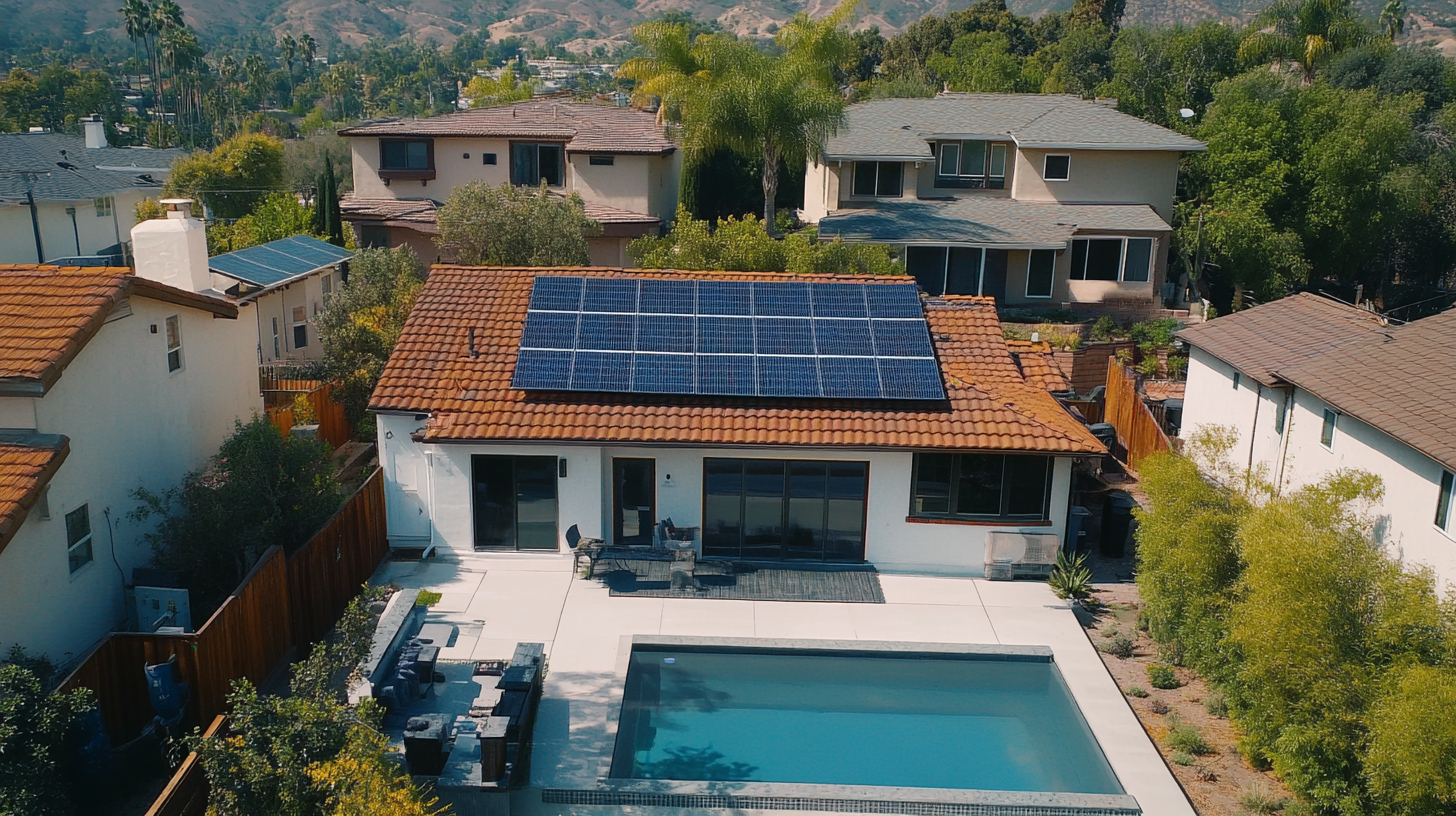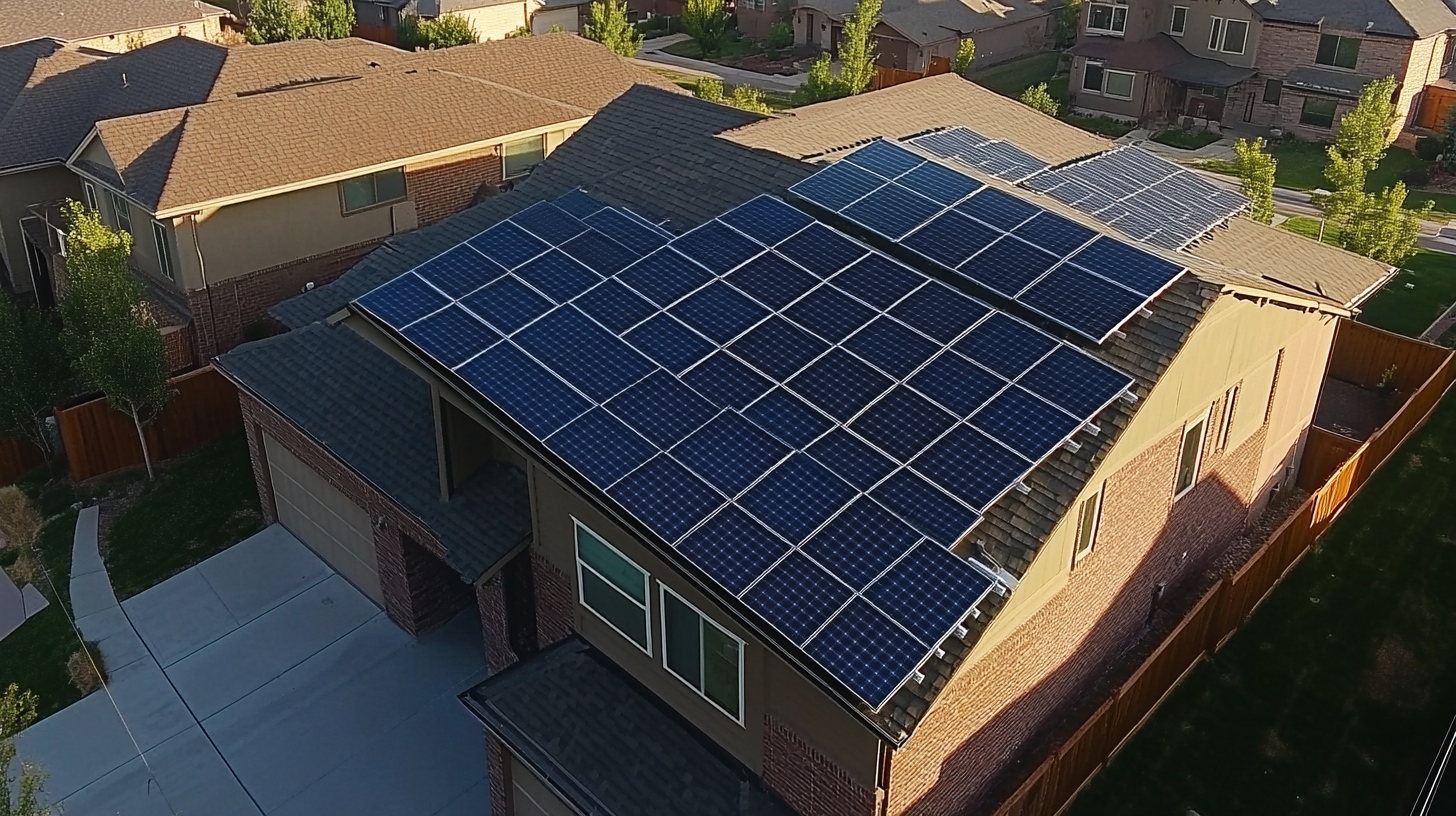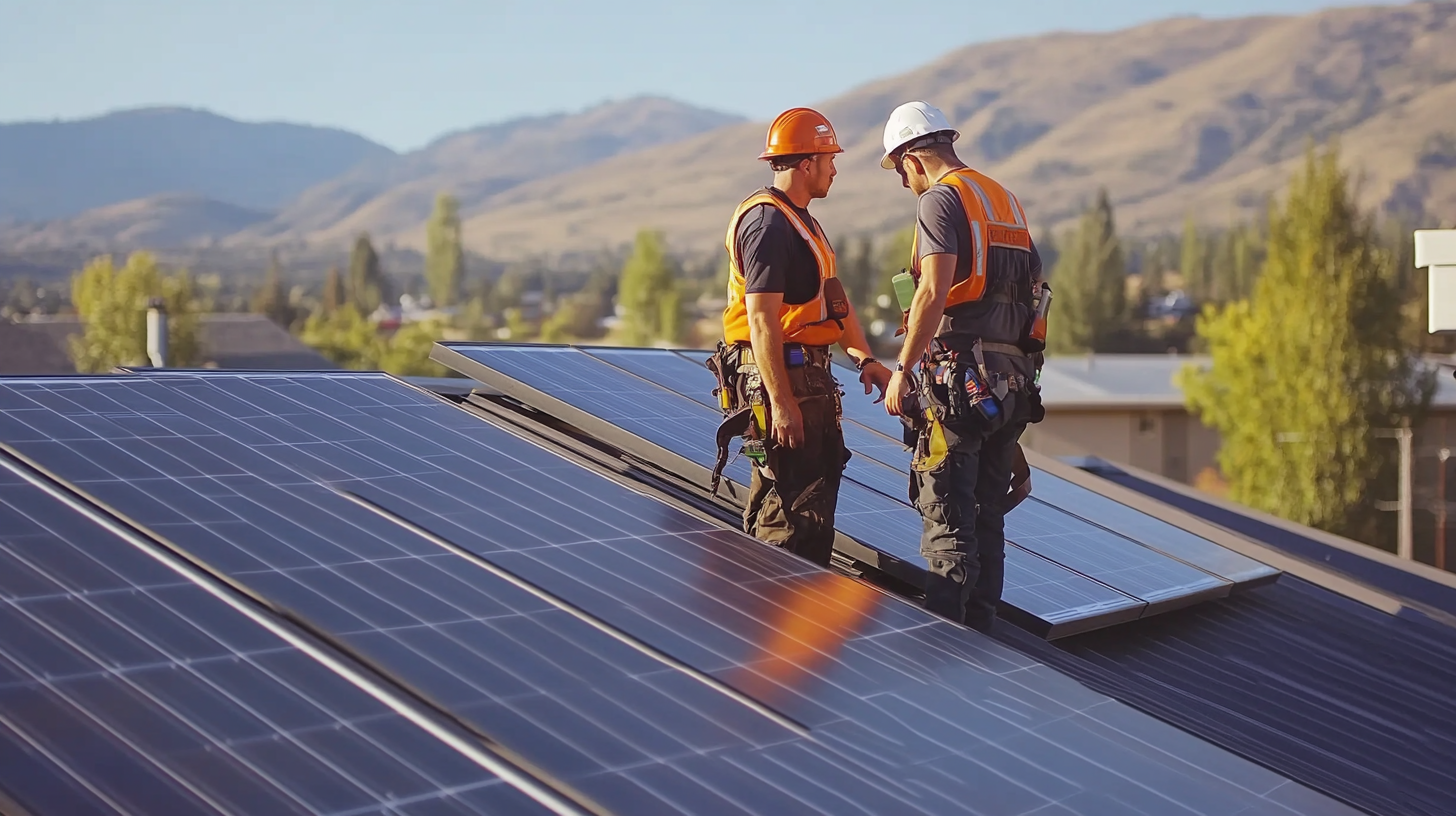Navigating Global Quality Standards when Sourcing Solar Panel Solutions
In an era where the transition to renewable energy sources is both essential and urgent, the demand for high-quality solar panel solutions has surged. As businesses and communities seek to harness solar energy to reduce their carbon footprints and enhance energy efficiency, navigating the complex landscape of global quality standards becomes a critical consideration. Whether sourcing from established manufacturers or emerging markets, understanding these standards ensures that the solar panel solutions selected not only meet performance expectations but also adhere to safety and environmental regulations.
As the solar industry expands, discrepancies in quality and compliance can pose significant risks to project success and sustainability. Hence, sourcing decisions are increasingly influenced by the ability to discern and evaluate the alignment of potential suppliers with established international standards. In this blog, we will explore the key considerations for sourcing solar panel solutions, emphasizing the importance of quality standards in ensuring successful and sustainable solar projects that contribute to a greener future.

Understanding the Importance of Global Quality Standards in Solar Panel Sourcing
In the rapidly evolving solar energy market, understanding global quality standards is crucial for those involved in sourcing solar panel solutions. These standards not only serve as benchmarks for the performance and reliability of solar panels but also ensure compliance with international safety and environmental regulations. As solar technology continues to advance, manufacturers and suppliers must navigate these standards to deliver products that meet consumer expectations and governmental requirements.
Quality standards such as those set by the International Electrotechnical Commission (IEC) and Underwriters Laboratories (UL) provide essential guidelines for testing and certification of solar panels. These standards help to assess key performance indicators including efficiency, durability, and temperature resistance. For companies sourcing solar products, adhering to these standards is vital to mitigate risks associated with subpar materials, which can lead to poor performance, increased maintenance costs, and negative impacts on customer satisfaction.
Furthermore, understanding and implementing global quality standards play a significant role in enhancing brand reputation and fostering consumer trust. As buyers become more informed about the implications of using high-quality components in solar installations, they increasingly seek assurance that their chosen products meet rigorous quality criteria. Companies that prioritize compliance with global quality standards not only position themselves competitively in the marketplace but also contribute to the broader goal of promoting sustainable energy solutions that benefit both the environment and society.
Navigating Global Quality Standards when Sourcing Solar Panel Solutions
| Quality Standard | Description | Importance | Example Certification |
|---|---|---|---|
| IEC 61215 | Standard for testing and qualification of crystalline silicon photovoltaic modules. | Ensures long-term reliability and safety of solar panels. | TÜV Rheinland |
| IEC 61730 | Safety standard for photovoltaic modules covering electrical and mechanical safety. | Reduces risks of electrical hazards and mechanical failures. | TÜV SÜD |
| ISO 9001 | Quality management system standard that ensures consistent quality in products and services. | Improves operational efficiency and customer satisfaction. | SGS |
| UL 1703 | Standard for safety of flat-plate photovoltaic modules and panels. | Validates the safety of solar panels for various environmental conditions. | Underwriters Laboratories (UL) |
| PVEL Reliability Scorecard | Evaluates PV module reliability through extensive testing. | Helps buyers understand long-term performance and reliability. | PVEL |
Key International Quality Standards for Solar Panels and Their Implications
When sourcing solar panel solutions, understanding key international quality standards is crucial for ensuring performance, reliability, and longevity. Standards such as IEC 61215 and IEC 61730 play a significant role in evaluating the durability and safety of photovoltaic modules. IEC 61215 focuses on the design qualification and type approval of crystalline silicon solar panels, assessing their performance under various environmental conditions, including temperature fluctuations and humidity. This standard not only aids manufacturers in improving product quality but also instills confidence in consumers regarding the longevity of their investments.
In addition to the IEC standards, certifications such as UL 1703 and ISO 9001 are pivotal. UL 1703 certifies the safety and performance of solar panel systems, ensuring that they meet stringent safety requirements before entering the market. This is particularly important in regions prone to extreme weather events, as certified panels are tested for their resilience against environmental stressors. Meanwhile, ISO 9001 outlines a framework for quality management systems, emphasizing continuous improvement and customer satisfaction. Adhering to these standards not only enhances product reliability but also streamlines the supply chain, making it more efficient and trustworthy.
By aligning with these international standards, stakeholders in the solar industry—from manufacturers to distributors—can mitigate risks and enhance their competitive edge. As the demand for renewable energy solutions grows globally, adhering to these quality benchmarks will be essential in promoting sustainable practices and fostering consumer trust in solar technology.
Navigating Global Quality Standards in Solar Panel Sourcing
This chart illustrates the key international quality standards for solar panels and their respective market share in the industry. Understanding these standards is crucial for manufacturers and suppliers to ensure compliance and enhance product quality.
Evaluating Suppliers: Ensuring Compliance with Quality Standards
When sourcing solar panel solutions, evaluating suppliers requires a meticulous approach to ensure compliance with international quality standards. According to the International Electrotechnical Commission (IEC), adherence to standards such as IEC 61215 for crystalline silicon photovoltaic modules is crucial. This standard not only assures durability but also consistently aligns with global best practices, leading to increased confidence from end-users.
The importance of supplier evaluation extends beyond compliance; it involves assessing the entire supply chain. A report by the Solar Energy Industries Association (SEIA) emphasizes that 75% of solar equipment failures occur due to poor vendor practices. This highlights the necessity for comprehensive audits and checks, not just during initial sourcing but as an ongoing process. By leveraging tools like ISO 9001 certification and conducting regular performance evaluations, companies can mitigate risks associated with supplier non-compliance.
Moreover, understanding regional compliance plays a significant role in supplier selection. The global market for solar energy is expected to reach $223.3 billion by 2026, as stated in a report by Mordor Intelligence, which underscores the competitive advantage of sourcing from compliant suppliers. By maintaining high quality across the supply chain, companies can not only protect their investments but also contribute to the sustainable energy movement.

Strategies for Effective Quality Management in Solar Panel Procurement
In today's rapidly evolving renewable energy landscape, effective quality management is essential for organizations involved in solar panel procurement. With global standards constantly shifting, businesses must adopt robust strategies to ensure that they source reliable products. According to a report by the International Renewable Energy Agency (IRENA), the global solar photovoltaic (PV) market is projected to reach 1,400 GW by 2030, emphasizing the need for quality assurance in such a competitive field.
One critical strategy for effective quality management is engaging in thorough supplier evaluation. According to the Solar Energy Industries Association (SEIA), over 80% of solar panel failures can be traced back to issues during the manufacturing phase. Therefore, potential suppliers should be assessed not only on price but also on their adherence to international quality standards such as ISO 9001. This includes reviewing their production processes, material sourcing, and compliance with environmental regulations.
Moreover, establishing a comprehensive testing protocol is crucial. A study by DNV GL revealed that more than 25% of solar panels do not meet expected performance levels after a few years due to subpar quality. By implementing in-field testing and accelerated lifecycle assessments, companies can better predict panel longevity and performance. It helps mitigate risks associated with poor-quality products and ensures that only the most reliable solutions reach the market, ultimately fostering trust with end users and stakeholders alike.

Navigating Challenges in Diverse Regulatory Environments for Solar Products
Navigating the complexities of diverse regulatory environments is crucial for companies sourcing solar panel solutions. Each country has its own set of standards and requirements, which can often lead to confusion and compliance challenges. For instance, the European Union mandates strict efficiency ratings and environmental impact assessments, while the United States emphasizes safety standards and performance certifications. As a result, businesses must stay informed about the local regulations to ensure their products meet the necessary criteria before entering these markets.
Moreover, varying quality standards can affect not only product performance but also consumer trust. In some regions, robust regulatory frameworks promote higher quality and sustainability, enhancing the reputation of solar products. Conversely, in jurisdictions with lax standards, there is a risk of inferior products entering the supply chain, which can damage brand integrity and customer satisfaction. Therefore, it becomes imperative for solar companies to work closely with local regulatory bodies and industry organizations to understand and adapt to these varying requirements.
Collaboration with reliable partners can also play a vital role in navigating these challenges. By engaging with suppliers and manufacturers who are experienced in the local regulatory landscape, companies can ensure better compliance and quality assurance. This strategic approach not only simplifies the sourcing process but also provides access to valuable insights on emerging trends and potential regulatory changes that could impact the solar industry globally.
Navigating Global Quality Standards in Solar Panel Sourcing
This chart illustrates the varying compliance rates of solar panel solutions across different regions, highlighting the challenges faced in diverse regulatory environments.